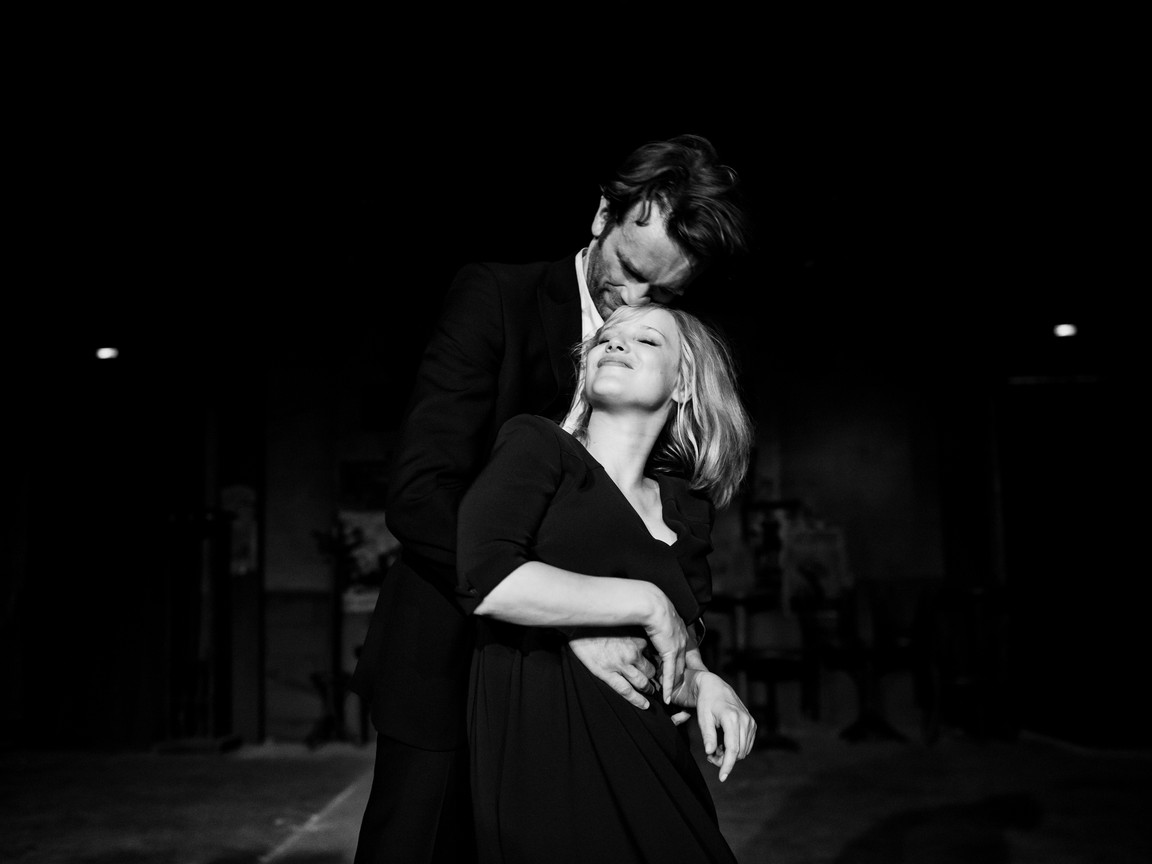FEBRUARY 20, 2019
“Cold War” is the real deal.
If you have any doubts, just consider that the fact that director Pawel Pawlikowski knocked out Bradley Cooper’s to take the fifth slot in this year’s Best Director race at the Oscars. His work in “Cold War” is just that good.
And just like Cooper’s “A Star Is Born,” the focus of “Cold War” is a torrid romance between a singer (Joanna Kulig) and another musician (in this case, a musical director played by Tomasz Kot) which may or may not be doomed from the start. But that’s where the comparisons end, because “Cold War” tells its own special love story in its own special way.
It’s post-war Poland, and musical director Wiktor (Kot) and his colleague Irena (Agata Kulesza) are traveling from town to town to record villagers performing their traditional songs with the hope of turning what they hear into a traveling show. Accompanying them on their research trip is government lackey Kaczmarek (Borys Szyc, who’s the spitting image of Putin) who’s keeping an eye on the entire project for whatever Communist purposes.
During one audition, Wiktor catches sight of young singer Zula (Kulig), who appears to be head and shoulders above the other women in terms of sophistication. When Wiktor looks at Zula that certain way, Irena immediately knows that any romantic chance that she may have had with Wiktor is kaput. As their show begins to tour, Wiktor and Zula find themselves being drawn even closer together, and the manner in which Pawlikowski shoots their sex scenes together, which are as hot as any I’ve seen this year, is striking, and Kot and Kulig are so skilled that you can see their love deepening while in between the sheets.
As the political cold war escalates between Eastern and Western countries, Wiktor is dismayed when Kaczmarek orders that his show be changed from a celebration of Polish culture to one dedicated to heralding the triumphs of the Communist state. That’s enough for Wiktor, and he plans to escape to the West along with Zula. But as Wiktor is ready to leave at the appointed meeting place, Zula bails on him, and he must flee alone.
The end for Wiktor and Zula? No, it’s only the beginning, and this is at this point where “Cold War” really gets down to business.
The structure of a love story set against the tumult of world events is nothing new — it’s the “Doctor Zhivago” school of romance. But what makes “Cold War” work on that level is Pawlikowski’s approach to storytelling. The cold war conflict is always there, just over the shoulders of the lovers, but it’s never at the expense of the romance, an affair that continues through the 1960s.
Pawlikowski uses music to to mark not only the passage of time but also the changing cultural worlds through which the lovers pass, from peasant music in Poland to the more sophisticated jazz and rock n roll in the West.
The key component in Pawlikowski’s vision, however, is the stunning black-and-white cinematography of Łukasz Żal. Though the cinematography in “Cold War” has repeatedly been compared to that of “Roma,” another black-and-white foreign language film, they’re actually very different — “Roma” is a memory piece shot in the haze that our memories retain, while “Cold War” has far more contrasting shades in its look. (There’s a mirror scene in “Cold War” that made me gasp in its beauty — when you see it, you’ll know the one I mean.) Throughout the season, the two films have been battling for cinematography honors, with the cinematography guild giving its award to “Cold War,” though I suspect the Oscar will go to “Roma.” Both are triumphs in their own way,
Kot is very good as Wictor, a man torn between his passion for a woman and his passion for his art. It’s a tricky role to pull off, and Kot does it admirably. But the real heat and heart of the film is Kulig, whose Zula never really shows her hand, even as she lets her guard down sexually. This is a complex performance that Kulig pulls off brilliantly and one that should have been included in this year’s Oscar conversations.
Ultimately, however, all credit should go to Pawlikowski, who is no stranger to critical acclaim. He is one of the most economical directors on the planet — this deeply satisfying plot and characterizations take only 88 minutes to tell. And you walk away feeling as if you’ve had a feast.
Pawlikowski’s 2014 film “Ida” won the Oscar for Best Foreign Language Film, and as good as that film was, “Cold War” is even better. I was already sold on “Cold War” when the coda appeared at the end saying “for my parents.” I recalled that he has noted that Wiktor and Zula are modeled on his real life parents. We should all have such sexy parents in our lives. Or such complex ones.
GRADE: A-












